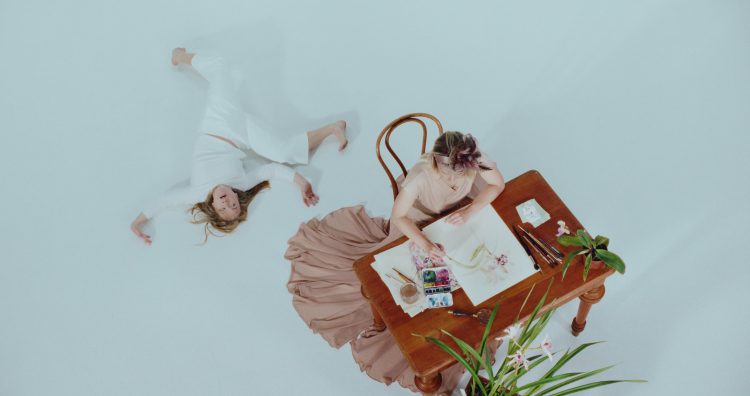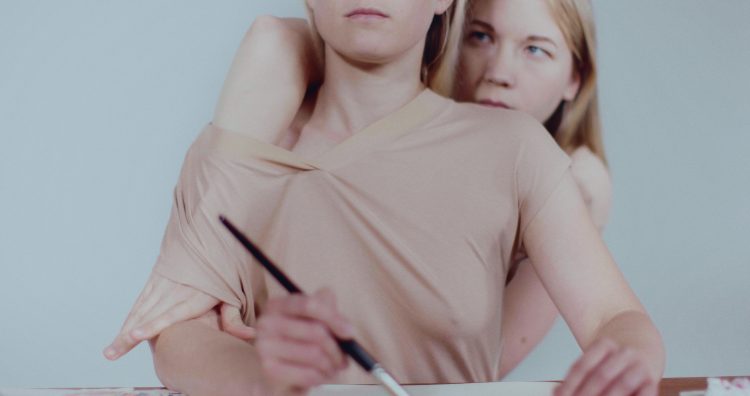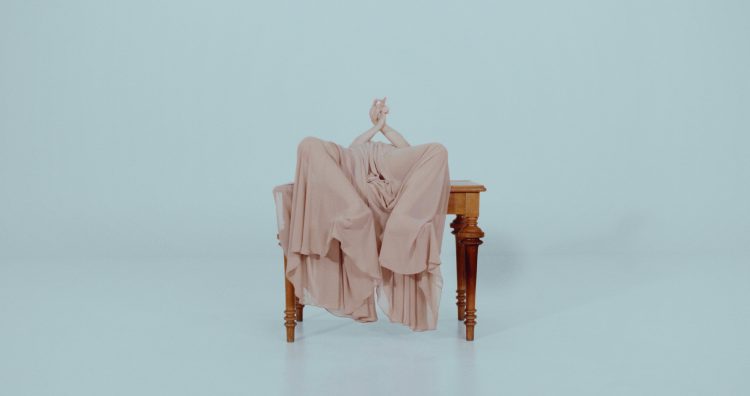Rip-Off / an Orchidelirium trilogy film
In Rip-Off the intimate tension between a lady of the manor and her servant keen to mimic her mistress is embodied by a pair of Doppelgängers. The performance of the two women becomes increasingly intimate, embodying and eroticising the tension between the colonizer and the colonized and the entanglement of their fantasies and desires. The film is set in various manor houses in Estonia, the architectural legacy of foreign colonial power. Prior to the collapse of the Russian empire the manors used to belong to the German-speaking nobility that had dominated the Baltics for centuries. In the film, the privilege of the Baltic upper class is not associated with leisure, but with women’s artistic aspirations.
*
Rip-Off is an episode of Kristina Norman’s Orchidelirium film trilogy.
Commissioned for the Estonian Pavilion at the 59th International Art Exhibition – La Biennale di Venezia.
*
Kristina Norman’s Orchidelirium film trilogy offers multiple ways to reflect on the legacies of colonialism. Investigating forgotten connections between Eastern Europe and the global south, it relates to the post-Socialist countries’ often uncomfortable rediscovery of their colonial history. The trilogy departs from research on an Estonian couple, Emilie and Andres Saal who end up as members of the colonial administration and elite in the Dutch colony in Indonesia in the late nineteenth century. Working with the Saals’ life stories and archives, Norman is intrigued by the conversion of the colonized into the colonizer and the hybrid identities resulting from this, full of controversies and tensions. Thus from a more global perspective her films also speak about the anxious relations between the colonial elites and the colonial subjects, and the ever-present afterlife of those liaisons. Including acts by three performance artists, the films explore the longing for privilege and abundance, as well as the environmental effect of these desires on the invisible consumption of human labour and non-human animals, plants, soil and water in the age of the Anthropocene. Being first and foremost interested in the contemporaneity of colonial past, the films explore the workings of neo-colonialism in the age of accelerating crisis, but also hint towards the possibility of resistance.
*
Author and Director: Kristina Norman
Choreographer and Lead Cast: Karolin Poska
Assistant Choreographer: Teresa Silva
Supporting Cast: Piia Haab, Hilkka Hiiop and Hannes Vinnal
Cinematographer: Erik Norkroos
Composer: Märt-Matis Lill
Advisors: Linda Kaljundi and Ulrike Plath
Curator: Corina Apostol
Producer: Erik Norkroos
Assistant Director: Meelis Muhu
Additional Camera: Meelis Muhu, Jörgen Norkroos and Kullar Viimne
1st Assistant Camera: Epp Kubu
2nd Assistant Camera: Maksim Podolski
Editing: Erik Norkroos
Colour Grading: Max Golomidov
Digital Effects: Lauri Laasik
Field Recording: Mart Kessel-Otsa
Studio Recording and Mix: Tammo Sumera
Musician: Kadri-Ann Sumera (piano)
Set Design Assistants: Karin Tetsmann and Liisi Eelmaa
Graphic Design: Laura Pappa
Production Assistance: Sten Ojavee and Sirli Oot
Technical Assistance: Aleksei Zaitsev, Henry Kasch and Vaiko Edur
*
Produced by Rühm Pluss Null
in collaboration with CCA Estonia





